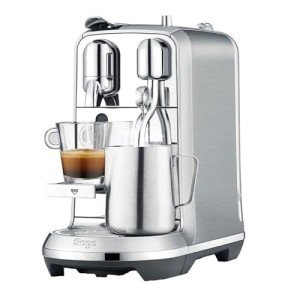Home Use Espresso Machines: A Comprehensive Guide
Espresso machines have actually ended up being a staple in lots of families as coffee enthusiasts look for to reproduce café-quality brews in the comfort of their cooking areas. The increase in appeal has actually resulted in a varied market filled with various models, functions, and prices. This post intends to supply a helpful summary of home use espresso machines, assisting readers browse their choices successfully.
Understanding Espresso Machines
Espresso machines work by forcing warm water through finely-ground coffee under high pressure, leading to a concentrated coffee beverage known as espresso. There are a number of kinds of espresso machines classified based upon their developing techniques and level of automation. The most typical types include:
- Manual Espresso Machines: These need the user to control the pressure and water flow, permitting a more hands-on coffee-making experience.
- Semi-Automatic Espresso Machines: These offer automatic control over water pressure, while the user by hand grinds and tamps the coffee.
- Automatic Espresso Machines: With the push of a button, these machines immediately manage the circulation of water, making it much easier to brew espresso with constant outcomes.
- Super-Automatic Espresso Machines: These all-in-one machines handle grinding, tampering, developing, and even milk frothing, making them ideal for users searching for benefit.
- Pill or Pod Machines: These use pre-packaged coffee pods to develop espresso with minimal effort, however they limit choice in developing techniques and flavors.
Table: Comparison of Espresso Machine Types
| Type | Control Level | Relieve of Use | Cleaning Level | Perfect For |
|---|---|---|---|---|
| Manual | User-controlled | Moderate | High | Coffee purists |
| Semi-Automatic | Partial automation | Moderate | Moderate | Home baristas |
| Automatic | Completely automated | Easy | Low | Hectic individuals |
| Super-Automatic | Fully automated | Really easy | Extremely low | Convenience candidates |
| Capsule/Pod | Totally automated | Very easy | Very low | Casual drinkers |
Key Features to Consider
When selecting a home use espresso machine, it's important to think about various features that can significantly affect the quality of espresso and user experience.
- Pressure: Look for machines that supply a minimum of 9 bars of pressure, as this is thought about ideal for brewing espresso.
- Boiler Systems: Single vs. dual boiler systems determine temperature level stability and the capability to brew espresso and steam milk at the same time.
- Grinder: Integrated mills allow for newly ground coffee, which boosts taste. Consider machines with adjustable grind settings.
- Milk Frother: For those who enjoy coffees and lattes, a built-in steam wand or automatic frother is crucial.
- Size and Design: Consider your kitchen area and visual preferences. Machines come in various sizes, from compact to large setups.
- Rate: Home espresso machines can vary from a few hundred to numerous thousand dollars, so it's vital to establish a budget before checking out choices.
Benefits and drawbacks of Home Use Espresso Machines
| Pros | Cons |
|---|---|
| Benefit of developing coffee in the house | Preliminary financial investment can be high |
| Quality of espresso is frequently exceptional | Needs some ability, specifically with manual machines |
| Capability to try out flavors | Maintenance and cleaning can be labor-intensive |
| Can save money in the long run | Not all machines will fit every coffee preference |
Maintenance and Cleaning Tips
Preserving an espresso machine is vital for lengthening its life and making sure constant brew quality. Here are some helpful tips:
- Regular Descaling: Minerals from water can build up in the machine. Descale every 1-3 months, depending upon water solidity.
- Daily Cleaning: Rinse portafilters, baskets, and steam wands after each use to prevent coffee oils from building residue.
- Use Filtered Water: This can help in reducing mineral buildup and enhance the taste of coffee.
- Change Gaskets and Seals: These components might wear gradually and ought to be replaced to preserve pressure and performance.
- Check out the Manual: Each machine has particular care directions; following these will ensure longevity.
Frequently Asked Questions About Home Use Espresso Machines
Q1: What is the very best budget espresso machine?The best budget espresso machine frequently depends upon specific needs, but designs like the DeLonghi EC155 or the Breville Bambino are popular among users for providing fantastic value. Q2: How long do home espresso machines normally last?With proper upkeep, home espresso machines can last anywhere from 5 to 15 years, depending on the quality of the machine and frequency of use. Q3: Can I make coffees and lattes with any espresso machine?While most espresso machines can make cappuccinos and lattes, having a dependable
steam wand or frother is essential for attaining the right milk texture.
Q4: Are super-automatic machines worth the investment?For Buy Espresso Online who focus on benefit and fast brewing, super-automatic machines can be worth the financial investment, though they might lack some customizability in brew strength and flavor. Q5: What kinds of coffee beans are best for espresso?While individual preference plays a role, beans identified as" espresso "blends are normally roasted darker, producing abundant flavors and a creamy texture when brewed.
Investing in a home espresso machine can transform the day-to-day coffee regimen into something special, raising home brews to café quality. By understanding the various types of machines, crucial features to think about, upkeep requirements, and weighing the
advantages and disadvantages, customers can make educated choices that fit their specific preferences. As the espresso culture continues to grow, no matter the choice, every brew can be a delicious experience waiting to be savored.

